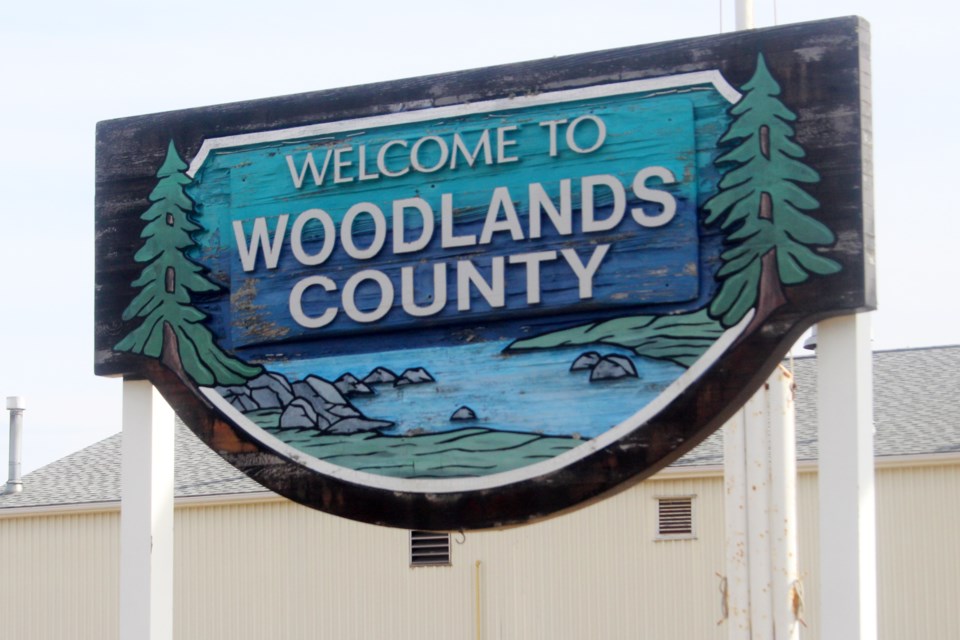BARRHEAD — Woodlands County councillors passed a motion at their April 5 meeting to alter the municipality’s Low-Income Benefits Program so that it uses the same income-based eligibility criteria as the Alberta FCSS Volunteer Income Tax Program instead of cut-off amounts acquired from Statistics Canada, which were deemed too low.
The new eligibility requirements for the program will take effect July 1. As well, the motion requires that the amended Policy 6211 be forwarded on to an upcoming Governance and Priorities committee meeting for further discussion.
Woodlands County’s Low-Income Benefits Program is meant to help low-income or disabled property-owners by providing access to property tax rebates, free snow flags and transportation funding to travel to health-related appointments.
However, community services co-ordinator Heather Anderson said that council had expressed concern during their March 15 meeting about the amounts used to determine eligibility for the program. As such, administration was directed to come back to the April 5 meeting with some possible alternative values.
Anderson said the program originally used Statistics Canada’s Low-Income Cut Off (LICO) amounts to determine who could qualify.
Going by the LICO amounts, a Woodlands County resident would not qualify for the program if they were earning more than $14,431 annually, while the cut-off amount for two people was $17,576. Other amounts for three to seven people were also included, though they were only slightly higher.
Anderson suggested instead they use the Alberta FCSS Volunteer Income Tax Program’s cutoffs to determine eligibility. This program enables low-income individuals to have their taxes completed by a volunteer.
Under the FCSS program, the income threshold is $30,000 for one person, $40,000 for two people, $42,500 for three and an additional $2,500 for every dependent in a household after that.
Alternatively, Anderson suggested that they could go with the eligibility criteria used by the Alberta Special Needs Assistance for Seniors, which is $29,630 for one person and $48,120 for two.
Division 1 Coun. Dave Kusch said he had been “really concerned” with the original amounts being utilized by the county’s program and felt the FCSS tax program had more realistic criteria.
Kusch said he would be willing to make a motion directing administration to utilize the FCSS tax program eligibility rates, as well as to forward this policy on to an upcoming Governance and Priorities meeting.
Division 3 Coun. Alan Deane said he agreed with the idea of forwarding this matter to the governance and priorities committee, but expressed a concern that Woodlands County was not retaining a separate benefit for seniors.
Admitting that he was not present at the council meeting where the Low-Income Benefits Program was approved, Deane indicated he thought the intent was to retain the senior’s benefit in addition to this program.
“In my opinion, the seniors that live in our county deserve to be recognized. They built the county. I do not like the idea of taking that away,” he said.
Kusch noted he expressed a similar concern, but administration told council that based on the numbers they were running, most seniors who would have gotten the old benefit would also qualify for the new program.
Reeve John Burrows, who represents Division 2, said that when a program like this is established, “it’s designed to be targeted to people that need these services and can’t do without them.”
He acknowledged that if a resident had lived in the county a long time, it could be argued they were entitled to some kind of reward. However, the whole idea of this initiative was specifically to help the people who really needed assistance.
And while the county could still do something akin to, say, a program where you get a free burger for reaching age 65, “there’s only so much money in the municipality to go around right now,” he said.
Division 5 Coun. Bruce Prestidge noted he had also spoken to one resident who was upset about the loss of the senior’s benefit despite not really needing it.
"It’s free money, so he wants it. Which I have a problem with,” he said.
Burrows noted that this was a tough discussion, but ultimately, they would go over it in more detail at the governance and priorities committee.



